How many proccesses are created with these fork functions?
int main(){
c2=0;
c1=fork();
if(c1==0)
c2=fork();
fork();
if(c2>0)
fork();
}
In this site,I have seen before questions related fork functions but this one is different. Here we have c1, c2 what does these variables mean?
